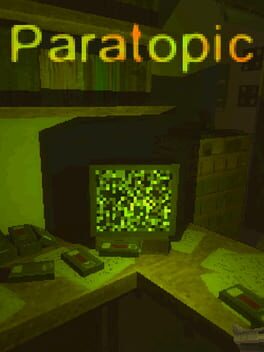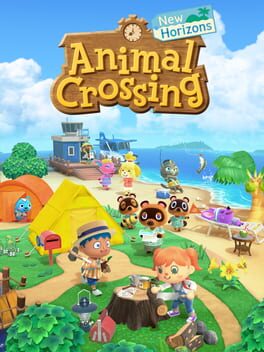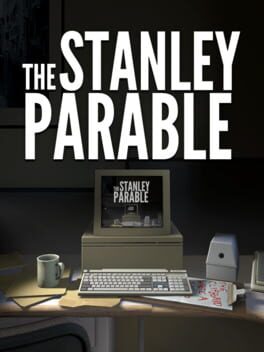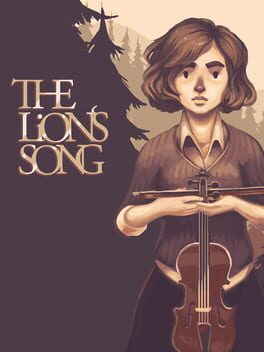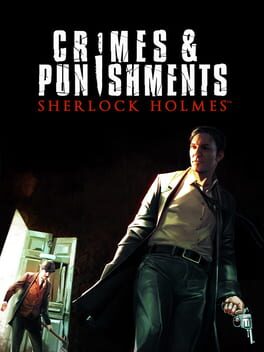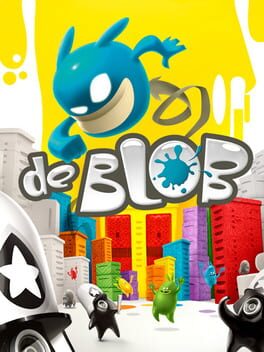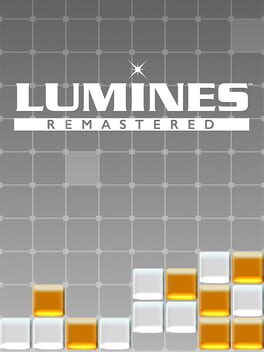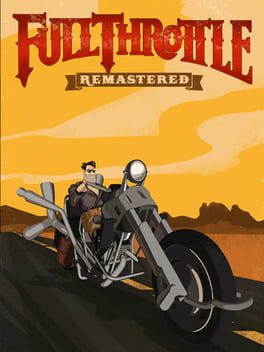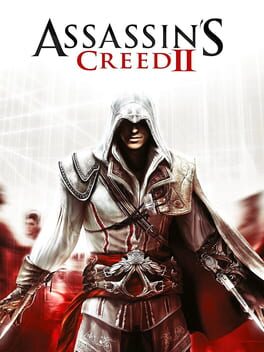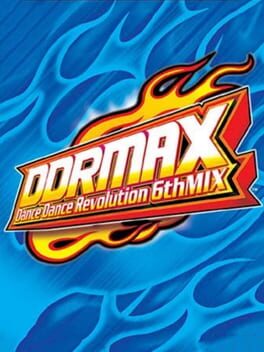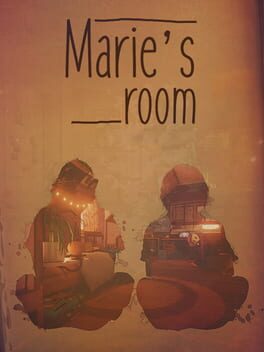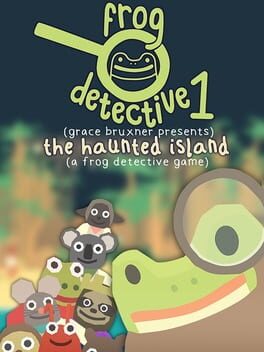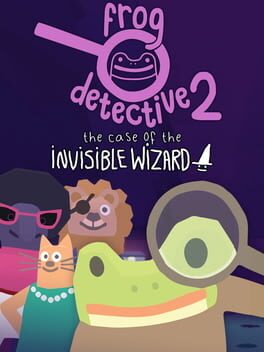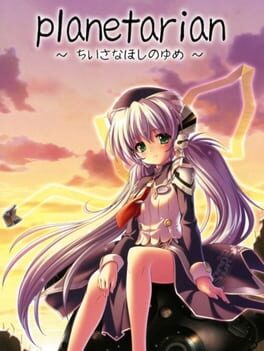tvwolfsnake
2018
I refuse to mark this game "Retired" or "Shelved" but every time I come back to it I feel kind of anxious and regretful, which is probably not the intended mood for the fun chillin' with furries game.
There's a lot to do but nothing I want to do, really. Maybe I'll be able to convince myself to finish up my recreation of the ni-chome metro station at some point.
There's a lot to do but nothing I want to do, really. Maybe I'll be able to convince myself to finish up my recreation of the ni-chome metro station at some point.
2013
2016
So torn on this game, which does a great job of adapting the feel of detective fiction in general and Holmes in specific but is also simultaneously way too hand-holdy, undercutting much of the joy the player might have in figuring it out themself, and has resolutions that feel kind of unfair, like flipping to the back of the Encyclopedia Brown book so Donald J. Sobol can tell you that actually there isn't One Clue That Unravels It All, but instead Master Brown is a licensed psychologist.
And like hey, given the title and certain themes, that might be the point! However, the game hasn't really pushed strongly enough in that direction for me to give it the benefit of that specific doubt.
The episodic nature is a strength, though.
And like hey, given the title and certain themes, that might be the point! However, the game hasn't really pushed strongly enough in that direction for me to give it the benefit of that specific doubt.
The episodic nature is a strength, though.
2008
2018
2009
I have started this game at least three times and I've never gotten past Venice. Something always gets in the way. My PS3 broke entirely. It's cursed.
Anyways, I still think the in-universe justification of gamey elements as being artifacts of a simulation—and notably a non-literal representation of that simulation—is pretty neat and from what I've seen of later games this (and probably AC1, which I haven't played) is the only one to really get it right. The "literally a game made by Abstergo" thing is too, well, literal for my taste.
Anyways, I still think the in-universe justification of gamey elements as being artifacts of a simulation—and notably a non-literal representation of that simulation—is pretty neat and from what I've seen of later games this (and probably AC1, which I haven't played) is the only one to really get it right. The "literally a game made by Abstergo" thing is too, well, literal for my taste.
2018
It's well voice-acted for its budget, and there's decisions it makes that I do like. (Most notably, it's about high school memories but the "past" of the game is the same year the game came out, which neatly avoids a lot of worn out nostalgia tropes.) It feels derivative, though, and doesn't take those influences to a particularly new or different place.
The denouement didn't feel earned, and I was kind of left wondering if the developers had a story they wanted to tell, or if they just put this together because they thought people might buy it.
The denouement didn't feel earned, and I was kind of left wondering if the developers had a story they wanted to tell, or if they just put this together because they thought people might buy it.
Enh.
It's not as if the game lacks charm entirely—there's a good joke or two—but instead of feeling satisfyingly brief, like I was hoping for from the reactions of others, it's more like the first act of an adventure game, compressed, with a scene that ties up some secondary threads arbitrarily declared the ending. It's like if Secret of Monkey Island ended with Guybrush and his crew getting on the ship, but with 90% of the puzzles on Melée removed.
Trading quest puzzles tend to be a boring chore, and Frog Detective's VN-but-sluggish interaction model definitely doesn't help there, but more importantly it isn't even really a puzzle. The closest it comes is "these objects serve a similar utility," but as a telegraphed substitution ("give me something that serves the same utility!") instead of something you have to work out for yourself. It might work better for small children, but also as someone who grew up on Humongous Entertainment I expect better of children's adventure games, so I don't know.
It's not as if the game lacks charm entirely—there's a good joke or two—but instead of feeling satisfyingly brief, like I was hoping for from the reactions of others, it's more like the first act of an adventure game, compressed, with a scene that ties up some secondary threads arbitrarily declared the ending. It's like if Secret of Monkey Island ended with Guybrush and his crew getting on the ship, but with 90% of the puzzles on Melée removed.
Trading quest puzzles tend to be a boring chore, and Frog Detective's VN-but-sluggish interaction model definitely doesn't help there, but more importantly it isn't even really a puzzle. The closest it comes is "these objects serve a similar utility," but as a telegraphed substitution ("give me something that serves the same utility!") instead of something you have to work out for yourself. It might work better for small children, but also as someone who grew up on Humongous Entertainment I expect better of children's adventure games, so I don't know.
It's better than the first game in some respects (the spooky forest atmosphere is lovely, for one thing) but unfortunately the same trading quest puzzle returns, and this time has a hidden object fetch quest choke point that makes it more obvious how aggressively linear it is. It's not that linearity is a bad thing, but the first game gave you access to the magnet before you'd talked to anyone, and instead the pies here are a fetch quest where your reward is the start of the set of trades.
More than anything I think the game coasts on charm, and I just don't find it that charming. Maybe I just don't have the stomach for twee, or maybe it's that the game just feels a bit too Tender Frog House to me. It's not the creators' fault how people respond, but I'm still allowed to be vaguely frustrated with the ~everything should be "wholesome"~ discourse that this series is probably used as a prop in. Does color my view a bit.
More than anything I think the game coasts on charm, and I just don't find it that charming. Maybe I just don't have the stomach for twee, or maybe it's that the game just feels a bit too Tender Frog House to me. It's not the creators' fault how people respond, but I'm still allowed to be vaguely frustrated with the ~everything should be "wholesome"~ discourse that this series is probably used as a prop in. Does color my view a bit.
This review contains spoilers
It's not as if this story doesn't have some big false notes in it—the one that most stuck out was that the Junker lacked some sort of impetus to change his mind and come back to the planetarium, instead just showing up again—and probably anyone could see Yumemi's final lines coming from a mile away.
But I'm a huge sucker for plots about clinging to hope in spite of everything, and learning to hope in spite of everything, and I'm an even bigger sucker for the dramatic irony of a twist of the knife you know is coming. Especially one already imbued with meaning.
One of the better ways to make yourself cry for two hours.
But I'm a huge sucker for plots about clinging to hope in spite of everything, and learning to hope in spite of everything, and I'm an even bigger sucker for the dramatic irony of a twist of the knife you know is coming. Especially one already imbued with meaning.
One of the better ways to make yourself cry for two hours.
2007
The core game is just fundamentally not a good design. High-level play is impressive but in spite of that. A shocking take, I know, coming from an arcade rhythm gamer.
The other modes are fine clones but there are better clones of more specific games.
I respect the charting community and the breadth of music is great. It's a worthwhile example of the power of collectives of hobbyists. I just...enh.
(also the group of osu fans that think everything's "from osu" are annoying but that's not in any way the game's fault)
The other modes are fine clones but there are better clones of more specific games.
I respect the charting community and the breadth of music is great. It's a worthwhile example of the power of collectives of hobbyists. I just...enh.
(also the group of osu fans that think everything's "from osu" are annoying but that's not in any way the game's fault)
